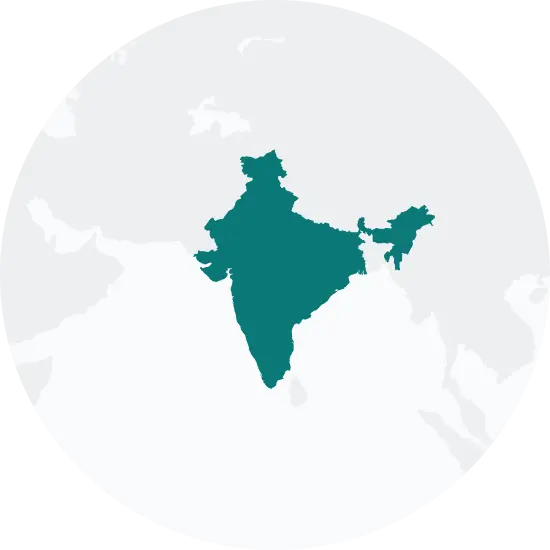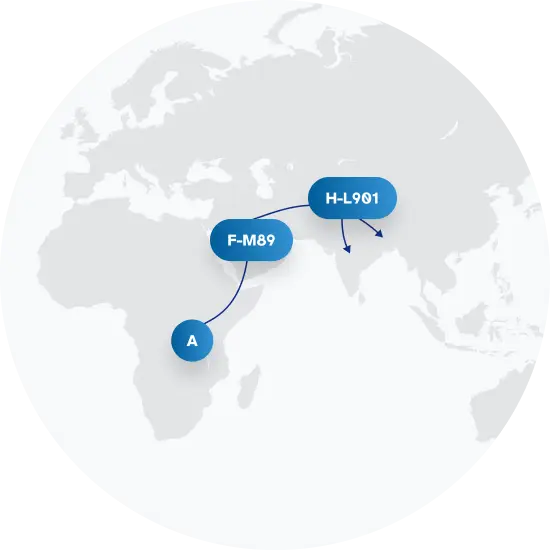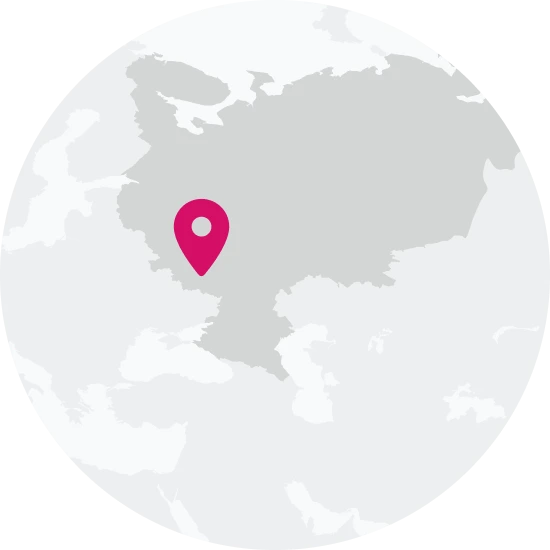Explore the Family Name Jain
How common is the last name Jain in the United States?
The surname Jain has seen a significant rise in popularity in the United States, based on data from the Decennial U.S. Census. In 2000, Jain was ranked as the 5,348th most popular surname, however, by 2010 it had climbed to the 3,094th spot, marking a change of 42.15%. The number of individuals bearing this surname also surged from 5,996 to 11,626 during the same period, an increase of almost 94%. The proportion of people with the Jain surname per 100,000 also rose by 77.48%, from 2.22 to 3.94.
| 2000 | 2010 | Change | |
|---|---|---|---|
| Rank | #5,348 | #3,094 | 42.15% |
| Count | 5,996 | 11,626 | 93.9% |
| Proportion per 100k | 2.22 | 3.94 | 77.48% |
Race and Ethnicity of people with the last name Jain
According to the ethnicity data from the Decennial U.S. Census, the Jain surname is predominantly associated with the Asian/Pacific Islander community, which grew from comprising 89.21% of Jains in 2000 to 93.35% in 2010, an increase of 4.64%. Over the decade, the percentage of Jains identifying with two or more races and those who identified as White both saw decreases of 51.93% and 41.68% respectively. Meanwhile, there was a slight increase in the Hispanic representation among Jains, up by 36.21%. The Black population within the Jain surname holders decreased slightly, while the American Indian and Alaskan Native group saw a noticeable increase of 126.67%, although they still comprise a small fraction of the overall Jain population.
| 2000 | 2010 | Change | |
|---|---|---|---|
| Asian/Pacific Islander | 89.21% | 93.35% | 4.64% |
| White | 6.07% | 3.54% | -41.68% |
| Two or More Races | 3.62% | 1.74% | -51.93% |
| Hispanic | 0.58% | 0.79% | 36.21% |
| American Indian and Alaskan Native | 0.15% | 0.34% | 126.67% |
| Black | 0.37% | 0.25% | -32.43% |
Jain ancestry composition
23andMe computes an ancestry breakdown for each customer. People may have ancestry from just one population or they may have ancestry from several populations. The most commonly-observed ancestry found in people with the surname Jain is Northern Indian & Pakistani, which comprises 82.6% of all ancestry found in people with the surname. The next two most common ancestries are Southern Indian & Sri Lankan (5.2%) and British & Irish (3.8%). Additional ancestries include French & German, Bengali & Northeast Indian, Eastern European, Spanish & Portuguese, and Indigenous American.
Ready to learn more about your ancestry? Get the most comprehensive ancestry breakdown on the market by taking our DNA test. Shop 23andMe
| ANCESTRY BREAKDOWN | COMPOSITION |
|---|---|
| Northern Indian & Pakistani | 82.6% |
| Southern Indian & Sri Lankan | 5.2% |
| British & Irish | 3.8% |
| Other | 8.4% |

Possible origins of the surname Jain
Your DNA provides clues about where your recent ancestors may have lived. Having many distant relatives in the same location suggests that you may all share common ancestry there. Locations with many distant relatives can also be places where people have migrated recently, such as large cities. If a large number of individuals who share your surname have distant relatives in a specific area, it could indicate a connection between your surname and that location, stemming from either recent ancestral ties or migration.
Based on 23andMe data, people with last name Jain have recent ancestry locations spanning a few countries, mostly in India, and Pakistan.
| RECENT ANCESTRY Location | Percentage |
|---|---|
| Gujarat, India | 22.60% |
| Rajasthan, India | 20.20% |
| Maharashtra, India | 18.80% |
| Madhya Pradesh, India | 18.20% |
| Punjab, India | 17.80% |
What Jain haplogroups can tell you
Haplogroups are genetic population groups that share a common ancestor on either your paternal or maternal line. These paternal and maternal haplogroups shed light on your genetic ancestry and help tell the story of your family.
The top paternal haplogroup of people with the surname Jain is H-M2914, which is predominantly found among people with Central & South Asian ancestry. Haplogroup H-M2914 is descended from haplogroup H-L901. Other common haplogroups include H-M52 and H-Z4417, which are predominantly found among people with Central & South Asian and Central & South Asian ancestry. Other surnames with similar common haplogroups are: Gupta, Agarwal, Agrawal, Kumar, Shah, Mehta, Hussain, Rahman, Zaman, Sharma.
The most common maternal haplogroups of people with Jain surname are: M, U2, M30. These most commonly trace back to individuals of Central & South Asian and European ancestry.
 Paternal Haplogroup Origins H-L901
Paternal Haplogroup Origins H-L901Your maternal lineage may be linked to the Markina Gora man
At an estimated 36,000 years old, the Markina Gora Skeleton is the second most ancient modern human to have his DNA fully sequenced. He was discovered in 1954 in southwest Russia, and recently analyzed to find clues about ancient European ancestry.This man is estimated to have been 20 to 25 years old, and at just below 5'2'' tall, he was short by modern standards. His DNA contained variants that suggested he had dark skin and brown eyes, and his skeletal features suggest he looked much like populations from tropical regions of the world, suggesting recent migration to the north. He also had more Neanderthal DNA than is found in Asians and Europeans today, which supports the hypothesis that humans mixed with Neanderthals early on in our history beyond Africa.

What do people with the surname Jain have in common?
Spoiler alert: it's complicated. People with the same last name are usually no more genetically similar than a randomly sampled group of people from the same population. That said, people with the same surname are more likely to have similar ancestries than randomly sampled individuals. The reason is the tendency of people with similar cultural or geographical backgrounds to preferentially mate with one another. That's why people who share a surname may be more likely to share traits and tendencies in common than people within the general population. Check out the percentages below to see the prevalences of tastes, habits, and traits of people with your surname compared with prevalences among 23andMe users.
Preferences
Traits
Habits
Wellness
Are health conditions linked to the last name Jain?
The short answer is that, if there is an association between surname and health, it's usually more about your ancestry than your name. Individuals with a given surname are no more genetically similar than the general population but often have similar ancestries. The populations of people associated with those shared ancestries often have sets of genetic variations, also known as alleles, in common. Some of those alleles are associated with a greater likelihood of developing certain diseases.
Disease variant frequency by ancestry
Disease allele frequencies in populations associated with the surname Jain are shown below. Important Note: not everyone with a disease allele will develop these health condition



















